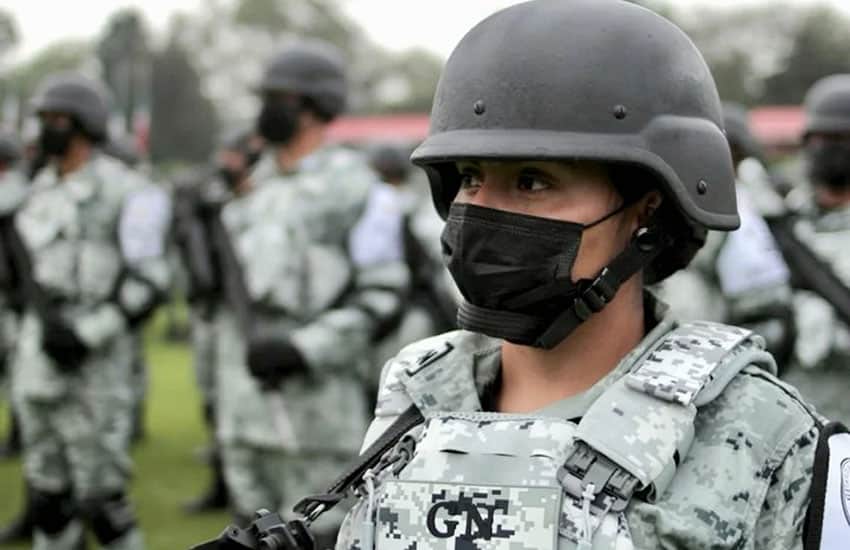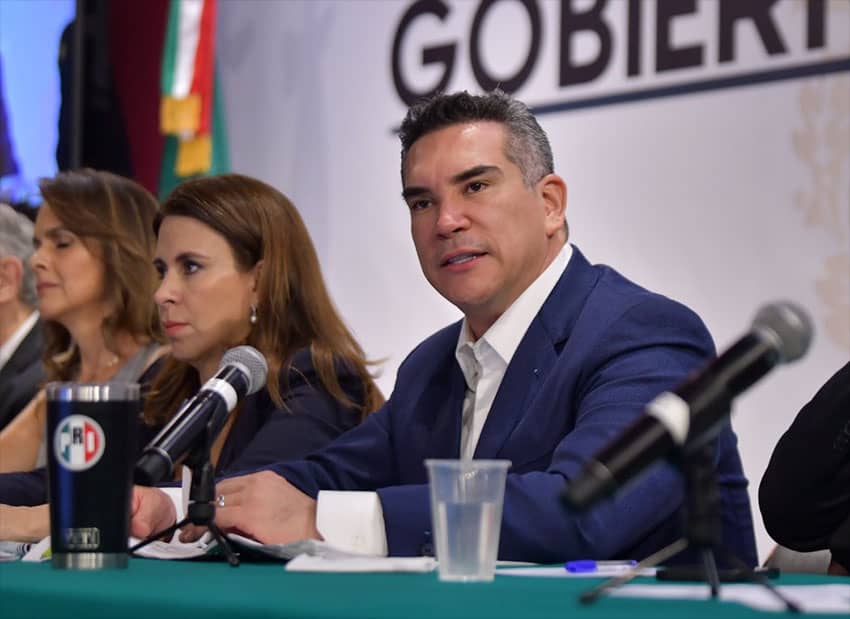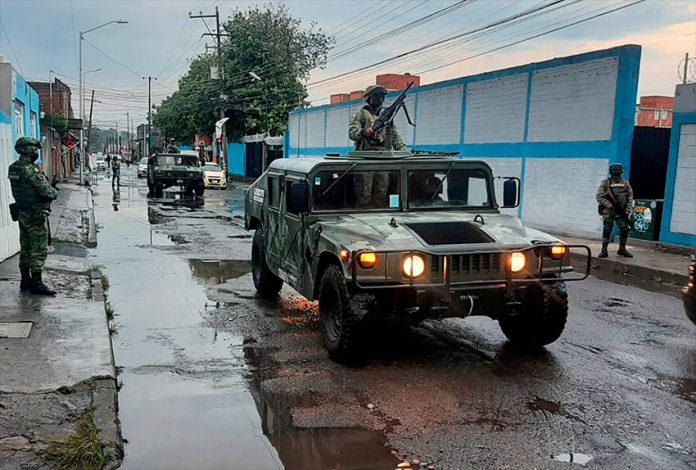Two controversial public security initiatives were endorsed by congressional committees on Wednesday and will now be considered by all lower or upper house lawmakers.
A bill that would authorize the use of the military for public security tasks until 2028 was approved by the Chamber of Deputies’ constitutional points committee, while a proposal to put the National Guard (GN) under the control of the army was approved during a joint meeting of the Senate’s justice and legislative studies committees.
The former, put forward by an Institutional Revolutionary Party (PRI) deputy, will be considered in the lower house next week, while the latter is being debated in the Senate on Thursday.
As things stand, the military is authorized to carry out public security tasks until March 2024. However, PRI Deputy Yolanda de la Torre believes that a four-year extension of the authorization is needed because the National Guard and state and municipal police haven’t shown they have the capacity to combat Mexico’s significant public security problems.

Her bill states that a “solid and effective” police force “is not built overnight” and therefore, while the National Guard “develops its structure, capacities and territorial establishment,” the president of the day can use the armed forces for public security tasks in an “extraordinary, regulated, controlled, subordinated and complementary way.”
PRI national president Alejandro Moreno said that the party’s deputies can vote as they see fit, but indicated that they are united behind the constitutional bill, which will likely also be supported by the ruling Morena party and its allies.
The proposal threatens the electoral and legislative alliance between the PRI, the National Action Party and the Democratic Revolution Party because the latter two are opposed to increased militarization of the country.
Earlier this week, PAN national leader Marko Cortés called on PRI lawmakers to withdraw de la Torre’s bill, or vote against it, while PRD chief Jésus Zambrano described the proposal as “not only concerning but also offensive.”

They both said that the Va por México coalition – which fielded common candidates in gubernatorial elections earlier this year – was at risk of breaking up.
Morena’s support for the second proposal – which seeks to put the GN under military control rather than civilian – ensured that it was approved by the two Senate committees. The proposed reform, which, if approved, would modify no less than four different laws, has been rejected by opposition parties, which warned of the risk of the militarization of public life.
It requires support from two-thirds of lawmakers to pass Congress – a supermajority Morena and its allies don’t have, but President López Obrador said last month that he also intended to issue a decree to put the National Guard under the control of the army. The decree, he asserted, would be binding even if the reform doesn’t pass Congress.
During Wednesday’s joint committee meeting, Morena Senator María Merced González asserted that most Mexicans want the GN to be under military control and that lawmakers have an obligation to legislate accordingly.
“The people rule. The majority of people believe the National Guard should have military control,” she said, apparently citing recent polls.
González said that Morena’s objective is to “protect society and give people an effective remedy against violence,” which neither the GN – under civilian command – nor the military has been able to significantly combat since López Obrador took office in late 2018.
In expressing his opposition to the plan to put the GN under military control, PAN Senator Damián Zepeda said that the militarization of public security – a policy implemented by former president Felipe Calderón when he deployed the army to combat cartels shortly after he took office in 2006 – has failed.
Calderón – who held office for the PAN between 2006 and 2012 – “failed in public security policy,” he said, adding that former president Enrique Peña Nieto, who perpetuated the militarized model during his 2012-18 government, “failed in public security policy” too.
López Obrador – who has also depended on the army to carry out public security tasks despite a campaign pledge to return soldiers to their barracks – has done no better, Zepeda charged.
With reports from La Jornada and Reforma
